
IYP 不是过眼云烟的新闻网站,我们提供实战能力,这里是值得您反复回看的档案室:iyouport.org
Year-end gift: Drawing the future on white paper (Episode 8) - The world we want
For a whole generation, they know why they are taking to the streets, because they have no future! But they fight, and we know, too, that we want another future, our own. We want to be the masters of the future.

What kind of society do you want to live in? What kind of people do you get along with and how do you get along with them? Whatever your answer is, there must be an image of the future. Not tomorrow, but here and now.
We refuse to discuss situations and destiny in a divination manner. Because we should not be a wooden pile floating in the river of history, constantly being taken to new waterfalls, although we are full of hope to enter the high seas...
We have to be able to get where we want to go. Become a pulp.
In the last episode, we will try to get rid of the common passive and bystander attitude in Chinese and present it with the initiative of the participants. This is also the basic strategic goal of this series as a whole.
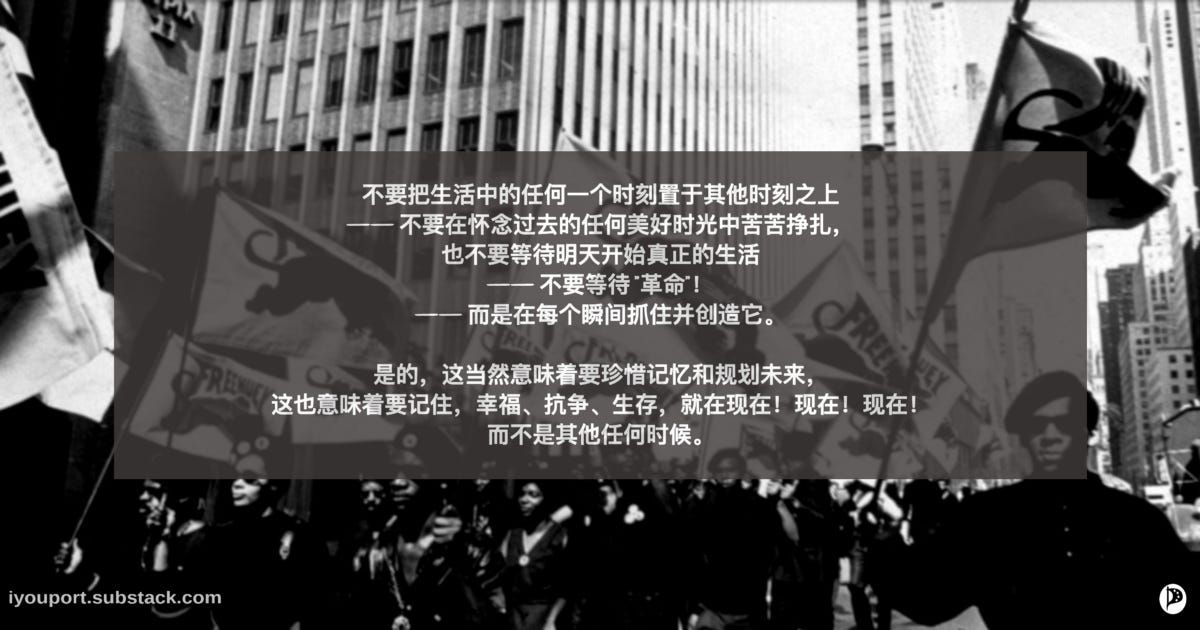
欢迎回来!这里是第8集.
If you missed it, you can see it below:
- " Year-End Rites: Drawing the Future on White Paper (Episode 1) - Are we "Iranian"? 》
- " Year-End Ceremony: Drawing the Future on White Paper (Episode 2) - The torch has been lit, what next? 》
- " Year-End Ceremony: Draw the Future on White Paper (Episode 3) - Compete for IQ with the rulers, not with the public "
- " Year-End Rites: Drawing the Future on a Blank Paper (Episode 4) — Yes, there is an uprising that is hard to suppress "
- " Year-End Gift: Drawing the Future on White Paper (Episode 5) - Smashing the Closed Loop "
- " Year-End Rite: Drawing the Future on White Paper (Episode 6) - Tolstoy or Zhang Xianzhong? No… 》
- " Year-End Ceremony: Drawing the Future on White Paper (Episode 7) - The Law of Attractiveness of Sports and the Opposition's Tips for Preventing Swearing "

The social system is always experimenting with its own forms of organization in order to survive and expand. Try something new, or follow the success of others. One choice or another spreads in waves.
Around the 1920s, a terrible fashion emerged in the political system: a wave of attempts to establish a fundamental new social order. Putting society under absolute control - a factory-like system.
The experience of industrial production seduces politicians. New technologies make people believe in possible success. The idea has been around for a long time, but never before has it seemed so practical.
At first, it all seemed to go well. But it is often forgotten that totalitarian fascist movements are on the rise even in the most "liberal" countries; and that "liberal ideas" themselves are mutating. This battle is fought on two levels: conflict within social systems to maintain relatively benign political institutions, and competition between institutions .
The totalitarian project never became dominant. Some systems deliberately make another bet: relative democracy and relative freedom. This confrontation only ended in the 1990s - with the collapse of the Soviet Union , it became clear that the totalitarian experiment had failed. But what happens if the conditions for effectiveness of certain organizational forms change?
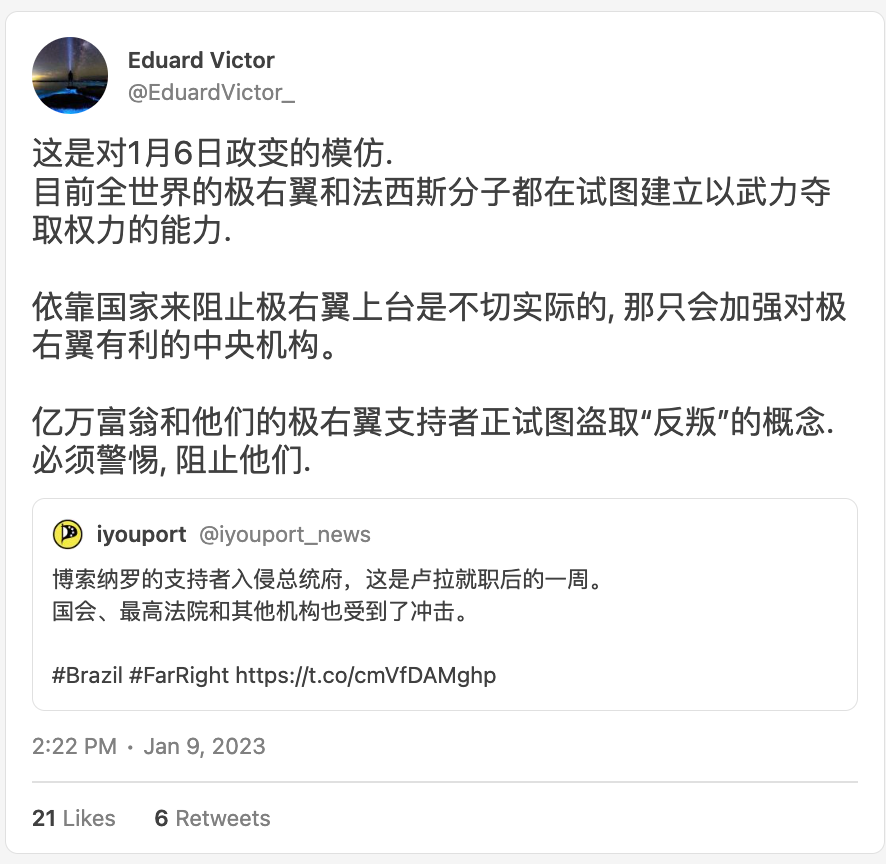
This new 20 years is not just a date on the calendar. This was another wave of experiments that shifted popular organizational forms closer to totalitarianism . Different technologies, different ideas, but the direction is the same.
Totalitarian technologies are spreading as clear examples of successful attempts. Every uprising that is suppressed, every mass shooting, increases the chance that it will happen again. Every instance of biometric surveillance and every successful legislative ban comes into play. Every local struggle is global .
China before 2019 was once the flagship of this undercurrent, because it used its own example to refute the "practical argument" that the alternative, conditional soft system once put forward, that is: fierce political oppression cannot be compared with fierce political oppression. Economic development coexists.
And three years later...

[Published on the channel on August 20 ]
Repost — —
The fact that the only thing left of socialism in modern China is the hammer and sickle on Gucci boutiques seems to be clear to everyone except tankies , who are like the Tolkienists of the left-wing movement .
The vast majority of people basically agree to call China’s model “ state capitalism .” But in liberal circles, there is a more interesting explanation, which claims that contemporary China is far from communism and socialism , and far from capitalism with "complete" entrepreneurial freedom , and that it is closer to so-called fascist corporatism.
It is characterized by a strong unitary state that controls all aspects of social life, does not prohibit private enterprise (like the communists), is not eager to nationalize it (like the socialists), but does not allow it to develop (like the socialists). like capitalism ), but coordinated within the framework of "national policy". That is, private companies are there, subordinate to the state, but not necessarily state-owned. If you put it that way, signs of this kind of fascist corporatism can be seen both in Putin's Russia and in nationalist circles in general, which believe in the need to subordinate the market to " the state . "
This view of China is not unfounded, however, I would like to remind that any "ism" is a conceptual abstraction - a theory organized around one principle or another and inspiring related practice. In other words, an "ism" is a text that does not exist in its pure form outside of the text on paper.
For example, it is not entirely correct to say that the United States is capitalism, the Soviet Union is communism, and modern China is fascist corporatism. Theory does not translate into ideal form. It would be more correct to say that we live in a world in which the organizing principle of capitalist economics is dominant, but that each particular economic system in this or that country is a salad of "isms" in varying proportions. Yes, the dressing is mostly capitalistic (nothing else) , just the ratio of carrots to peas may be different. American “capitalism” is different from German “socialism”, and Swedish “socialism” is different from Soviet “socialism.” You can identify any ills in the political order of any country if you want to. But to rhetorically reduce a country to a single "ism" is to completely divorce itself from its reality .
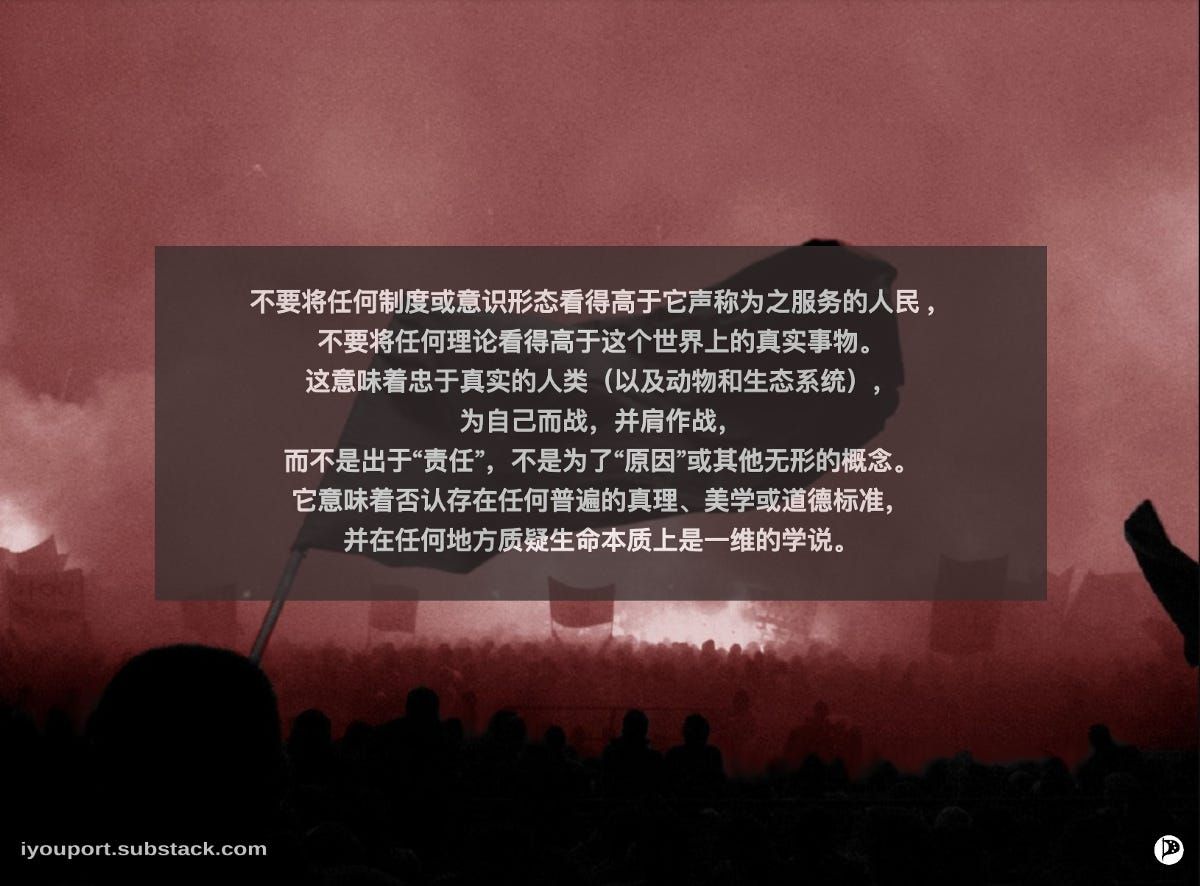
It is assumed that for each management parameter there are strategies that contribute to the success of the social system; deviations from these strategies can lead to hysteresis and decline.
The player making a strategy choice neither knows the entire set of possible strategies nor the relative effectiveness of each strategy under current conditions. Social systems try to find the best combination of strategies—in varying proportions—through trial and error. Those who chose wrongly faded or disappeared; those who chose rightly thrived and expanded.
No strategy is absolutely perfect. Environmental conditions are constantly changing; the decisions of other actors are constantly changing; and more effective methods are constantly being discovered.
In the process of experimentation, different strategy systems compete with each other through the groups that support them.
Infectiousness
Demonstrating success will encourage other players to follow suit . Effective strategic communications. Conversely, a bad example increases other players' strategic avoidance. This is why rulers continue to preach the superiority of the system. This is also why examples of uprisings with good results can be so harmful to other authoritarian countries around them. A successful revolution can lead to a wave of revolutions - as happened after 1640, 1790, and 1848.
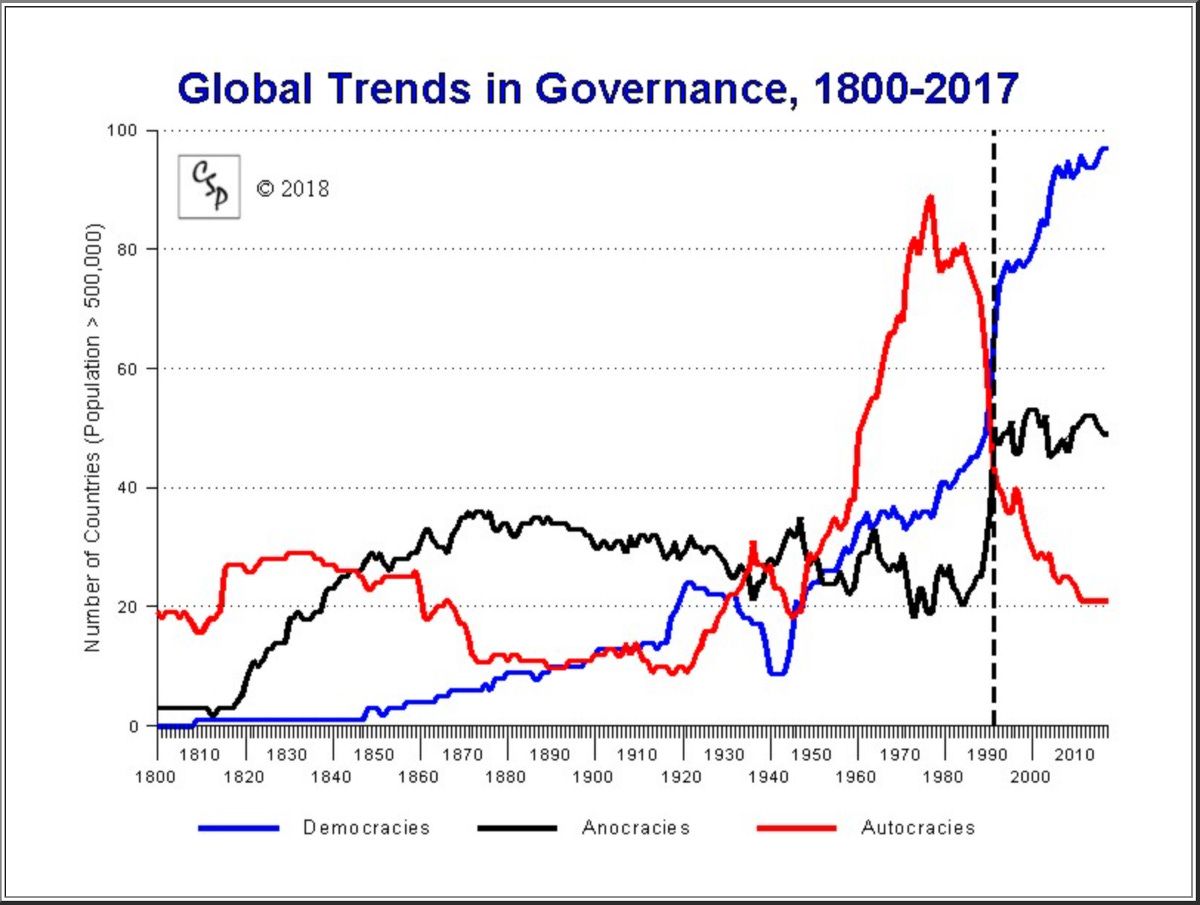
The chart above shows the number of autocracies, democracies, and non-dominance states in the world from 1800–2017. You will notice that, except for a sharp decline from the early 1920s to the mid-1940s, the number of democracies was almost It's always growing. The number of authoritarian states declined at the end of the 19th century, but grew rapidly starting in the 1920s and declined sharply in the 1980s and 1990s. Although the number of non-dominated institutions increased from the mid-1810s to the 1870s, it remained relatively stable until the 1880s.
The data show three nominal groups who choose different governance strategies on the general parameters of authoritarianism-democracy. The lines in the graph show how perceptions of “effective strategies” have changed over time. Of course, the statistics are affected by big business' support for local authoritarian regimes , but this is only a secondary effect of the rise of authoritarian regimes in the early part of this century.
From the decentralization of power in the Middle Ages to the rise of despotic states, and then their decline and the rise of two combined trends: the improvement and widespread penetration of central instruments of power , and the democratization of the institutions of power.
The rise of totalitarianism
Beginning in the 1920s, a set of authoritarian tactics became dramatically popular. This wave emerged with the impact of new waves in philosophy, art, and scientific breakthroughs. Industrialization and the dismantling of old norms and barriers influenced popular perceptions. The question arises everywhere: Why can’t we organize things differently? Ditch the old crap and build direct, factory-like control systems? Why not tear down the old cities and build new ones out of glass and steel? Finally, why not give governance to a smart person with a strong will, a kind of engineer of the future society? … New scientific advances have created widespread expectations, as in “We can now bring society completely under control , and rational management from the center will be most effective.” The Enlightenment worldview finally found its ideal form. Authoritarian strategy seems to be "the future" itself. Some people don't like this, some think it shouldn't be this way, but few think authoritarian regimes can be ineffective. Not surprisingly, there are groups that want to try new approaches.
The new authoritarian regime naturally co-opted the most popular ideologies: nationalism , statism , all those ideas that became an essential part of politics after 1848. The same situation can be said from another perspective - the representatives of the most successful popular ideologies choose "new efficient technologies". A naive mind would dismiss these ideologies as “the cause of authoritarianism” when in fact they are just a new set of strategic tools.
For a while, the situation was uncertain and the success of authoritarianism was frightening, but eventually the pendulum swung in the right direction and the authoritarian strategy began to lose momentum. A set of social systems makes a choice; reality rewards the outcome; the set loses. It turns out that even if authoritarian regimes are effective in the short term, they lose to "democratic" regimes in the long term. Perhaps authoritarian regimes are less adaptable, and this adaptability is necessary to survive in complex environments. The collapse of the Soviet Union was a clear sign of this failure.
Experiments in this area are being carried out regularly, but so far the system has only succeeded locally. But beware, new technology can bring about change; high adaptability can become a tool for centralized management .
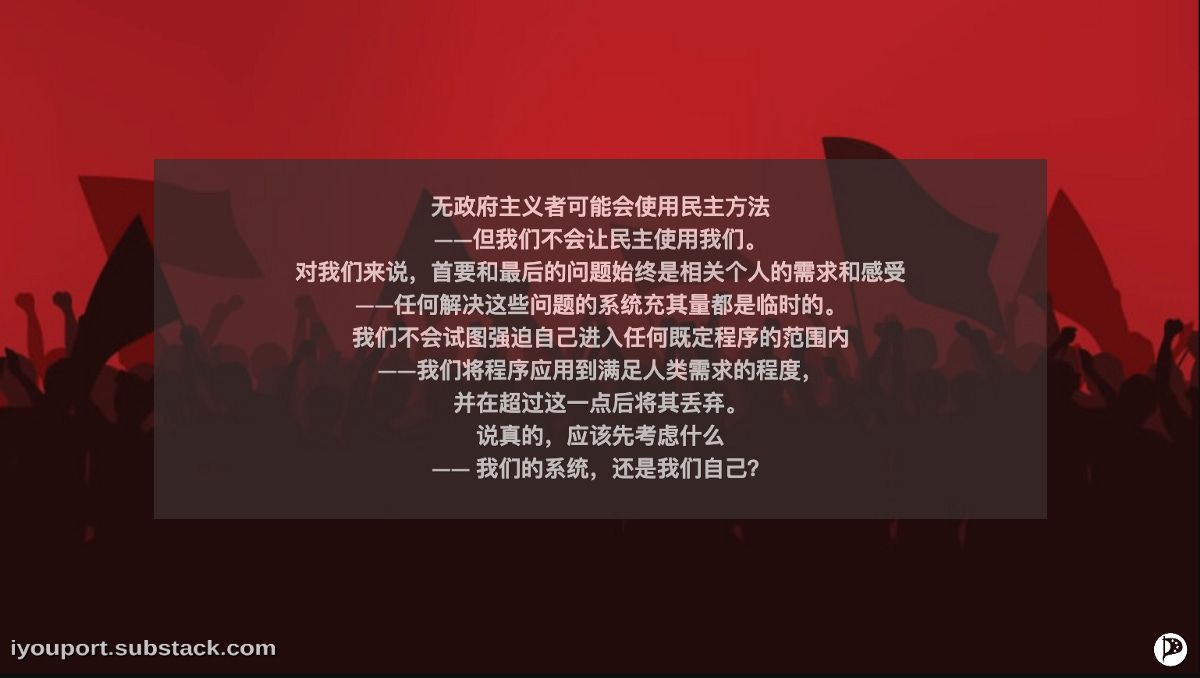
The game deals with social systems of different scales and natures: states, economic structures, communities and communes, systems from multiple countries or markets. For different scales of social systems, different sets of strategies may be effective.
Additionally, each system employs many different strategies for different governance parameters. Depending on the governance parameters under consideration, a different set of competing strategies will be seen.
About balance
An effective strategy depends on some constant conditions on the one hand, and on the choices the player makes and how the environment changes on the other. Therefore, for each player, there are always some effective strategies that will cause changes in the strategies of other players, which in turn will change the requirements for the former's strategies. It can be said that this is a non-equilibrium state. But there are also cases where each player has chosen the most efficient strategy for himself in the given conditions, and no one can change this behavior for the better. We can call this state "equilibrium". The concept of "balance" here has nothing to do with game theory or economics, it is broad.
There is never a perfect balance in the political world, but a relative balance may occur over a period of time and within a certain range.
long term changes
The political hopes of libertarianism seem to be tied to some notion of balance. An effective set of strategies is known, and by following this set of strategies, players will often reach a stable state of a decentralized community. All players strive for a state that maximizes their profits, but this state is not accompanied by a constant increase in power, but at a specific point of expansion; further expansion does not increase; Will reduce profits and here, expansion starts to slow down. The roles they play are fixed, if not specific. Local riots occur , companies rise and fall, but at the cost the general structure of relationships is preserved.
The liberal approach rejects a simplistic model in which capital grows endlessly, empires expand endlessly, and power requires only ever-increasing strength. Some views are influenced by the image of "market equilibrium", while others are influenced by the logic that " imperialism is the highest stage of capitalism ." But both models capture only part of what's going on. Here are the factors that hopes for political balance fail to take into account:
- Uncertainty in choosing an “effective strategy” forces participants to engage in trial and error
- Technological advances change players' ability to control resources
- Large groups have long planning horizons: they may accept immediate losses for a distant goal
- The buffering of large resources makes the choice-profit reward cycles in experiments less obvious over short periods of time, and where they are obvious, over very long time spans
- Participants do not always make decisions rationally: the leader's special position within the group has consequences for behavior.
(The last one is almost the only point of interest in most Chinese speculations on the Internet. This is seriously one-sided and will cause the analysis to turn into divination)
Combining the above two views, we can see a more comprehensive picture. Yes, there is a "complexity ceiling" in governance, which if exceeded will cause the imperial system to collapse . But even though at any given moment a "complexity ceiling" imposes a limit on the growth of a system and makes it more likely that the distribution of power among many actors will be balanced, the complexity ceiling itself changes as technology advances Variety.
The libertarian principle of feasibility has to do with finite time scales. If we take a larger time frame, we get a different picture. If at any given moment there is some equilibrium for us with only local deviations, then over time the conditions of equilibrium to which the actors aspire will change. What appears to be a state of equilibrium appears to be a state of instability. In the long run, the world tends toward some other state. The "centre of balance" for selecting effective strategies appears to shift over time. The existence of self-regulation limits the accumulation of capital, but the conditions for self-regulation are changing. And these changes have a certain direction. If this is true, then the concept of balance of power appears in a new light.
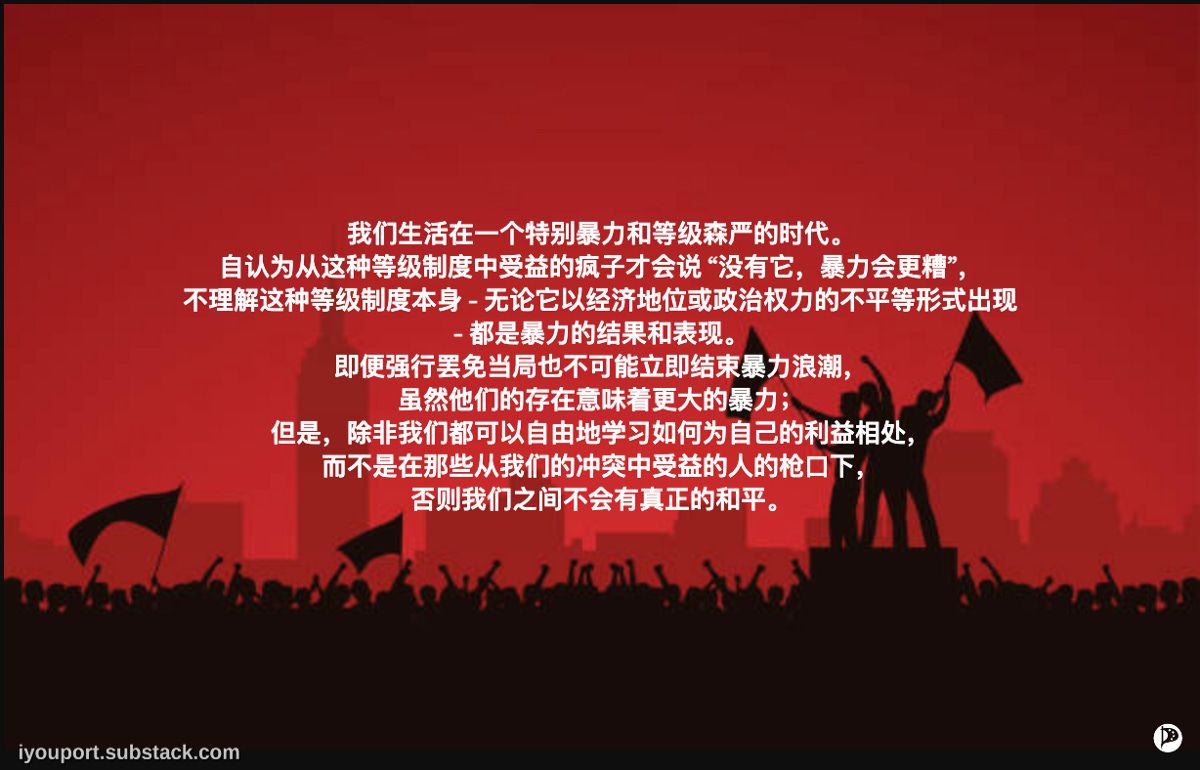
As long as the “complexity ceiling” that limits governance continues to rise, the image of long-term equilibrium in the world of political systems may be daunting.
What we need to assess is not the possibility of a single experimental utopia—we need to assess the possibility of an entire world-system transformation.
Our hope is linked to the ideas of radical constructivism. Imagine an “evolutionary landscape” where there is not one but multiple cores of effective strategy? Imagine that there is not a single possible equilibrium state, but multiple? They may simply be unknown … The task of an anarchic social system then is to find alternative sets of efficient strategies and alternative equilibrium states through a variety of options. They may require different initial conditions. Then Black Swan may be the savior. What we need to assess is not the possibility of a single experimental utopia—we need to assess the possibility of an entire world-system transformation.

At the turn of the twentieth century, failed global projects produced a deep pessimism and a paralysis towards the idea of transformation. However, the first decades of the new century have made it clear that the " end of history " has closed. Increasing instability, disobedience and ungovernability have emerged. The number of anti-government demonstrations under various slogans and flags has increased by several orders of magnitude compared to before. Over the past century, political Olympic projects that attempted to reshape the world were morally and practically bankrupt and quickly evaporated. Even the liberal project that seemed ultimately victorious was in fact simply dissolved into a global capitalist system and world political game in which liberal mechanisms did not operate here and there.
At the same time, there is an urgent need for radical change on the widest possible geographical scale. As before, we need a new world. Almost everything that exists in real society is unacceptable and cannot serve as a framework for the present and future.
But what will the transformed reality look like? You’ve always heard eerie predictions about a “brave new world” run entirely by a posthuman elite, or a new feudalism and Great Schism, accompanied by brutal waves of violence. Accompanying these images is the prospect of global environmental catastrophe.
But amid all the gloom, a different trend is becoming clearer and more frequent. It is the struggle for direct democracy , egalitarian collectivism, the elimination of inequality and oppression , and the search for harmonious coexistence with nature . This trend is still "spillover" into many social trends and has not yet formed a single stream. Nonetheless, it made anarchism relevant again.
At a time when all other preachers and fortune tellers are showing themselves to be liars or lunatics, it is time for anarchists to remember their mission and reaffirm their global project - How can we outline its possible common denominators?

Dismantling the supercomputer
Modern mass society is squeezed into huge urban clusters. The vast majority of human life is controlled and directed by the state and the laws of capitalist production, exchange and consumption relations. As a result, modern man finds himself in the position of being an object manipulated by vast machine-like forces.
At the same time, we are immersed in constant turmoil.
The modern world is a dream of reason and affection, replaced by temporary desires for external control. This condition conflicts with human nature and can easily lead to dissatisfaction and subsequent desire for other things.
However, the deformed, heavy body of the state makes people feel fear and doubt: Can we be liberated from their iron heel? Endless buying and selling, permeating our daily lives in countless threads, intensifies our dependence and, worse yet, makes us depraved and corrupted, as if the ruin begins from within.
However, the process of life pushes people towards rebellion. History teaches us that even the most powerful social systems can collapse like a house of cards, sometimes unexpectedly. These are the starting points for our struggle against the current order. Smashing and dismantling the megamachine is the grand task of the anarchist movement.

a new community
Today, we are witnessing the gradual atomization and weakening of collective bonds . Neighbors know each other less and less, sometimes even avoiding each other entirely. Lively and noisy family gatherings are becoming increasingly rare and forced.
The causes of this painful social phenomenon are complex and it is not easy to identify the main causes. There is the ever-growing sphere of personal entertainment, the general trend toward personal comfort, which is always threatened by "unnecessary" intimacy, and the notorious egoism that is an integral part of market capitalist society, which Transform any relationship into a temporary interaction between two "consumers" for mutual benefit. There are no citizens, only consumers. The word "partner" is becoming more and more popular. It has an obvious alienating meaning and is antonymous with concepts such as "loved one", "friend", and "teammate"...
We believe that the crisis of collectivity, the crisis that prevents people from coming together, is one of the most disastrous consequences of capitalism and nationhood. In addition to moralization in purely ethical terms, anarchist revolution also needs concrete institutional tools to rebuild solidarity and create "new communities."
As institutions dig their claws into the fabric of society, tearing people apart from each other and from the body of society, all will find themselves faced with the need to re-establish warm lateral connections and solidarity.
Yes, we plan to get together and make decisions, cook in crowded and noisy kitchens instead of eating junk food out of delivery bags, and introduce our kids to their peers on the street instead of just leaving them to sit alone Watch cartoons... The degradation of humanity that is unfolding rapidly before our eyes can and must be stopped.
economy
The management of people for personal enrichment, the treatment of all living and non-living things in the world as resources for profit, the pathological luxury of the few and the scarcity of the vast majority - these are just a few of the features of the modern economy. The most striking illustration of the pattern. Its essence is diametrically opposed to what is generally accepted as right and just. The long list of reasons to reject capitalism boils down to two main arguments: 1) it is immoral, unjust and demeaning, and 2) it fails to provide a decent standard of living for all.
Cash and commodity relations, wage labor, investments, bank loans and interest rates are so entrenched in people's daily lives that it sometimes seems unrealistic to escape them. As if famine and decline would immediately follow without them.
But we have something to fight against this "trend": it is human labor (thousands of people today are wasting their own labor time due to the scourge of bullshit jobs ); it is the labor experience of workers that will make They are able to sustain an economy without bosses ; it is technology that will enable society to regulate production and distribution systems according to its needs and values... This should be enough to move the economy from the elite to society to ensure fair management of production by the people.
The mission of the anarchist movement is to ingrain an understanding of the principles of economic justice in society through words, actions and example, and to "clear the space" after the overthrow of the state and capitalists - to provide the social and political conditions for its realization.

eliminate discrimination
Modern society is filled with discrimination based on many different grounds. A person or group may be discriminated against on the basis of many attributes and characteristics. The reasons are old or new prejudices, the principle of collective responsibility, and the active alienation of people from each other in a world steeped in capitalism.
Prejudice and collective responsibility are skillfully manipulated by unscrupulous politicians, while alienation is a “side effect” of the current system.
One of the oldest and most painful forms of discrimination in human existence is gender oppression. While so-called "East and West" alike have evolved significantly from the overtly patriarchal past, women are still oppressed. Data on domestic violence, sexual and gender-based violence, and differences in average incomes illustrate this. Practices and behaviors that denigrate women remain strong. In our social reality, there is a lot of invisible cultural garbage that prevents women from realizing their human potential.
All human relationships are severely poisoned by gender stereotypes and the mutual consumerism and selfishness based on these notions. Because of this, even the most seemingly intimate connections can cause people pain and discomfort, rather than the other way around. Capitalism and an authoritarian worldview prevent the birth of true intimacy .
The mission of anarchism is to achieve true sisterhood/brotherhood between people, not any group identity. We have different tools to deal with this problem: 1) cooperative practices in building and managing society, which require equal cooperation and mutual warmth from all participants in the process; 2) revolutionary political culture, which requires the participation of all oppressed groups Representatives consciously and actively participate in common social work; 3) Finally, education and literacy, which help to abandon prejudices.
The ambition of the anarchist project is therefore to bring love of neighbor back into our lives, no matter how fragile it may sound, by eliminating discrimination and improving relations between people. Capitalism and authoritarianism as social phenomena hinder this. This obstacle is not insurmountable.

resolve national conflicts
Since ancient times, human society has been facing violent confrontations triggered by racial or ethnic cultural differences. These problems are compounded by religious and racial criteria. Ethnic and interethnic conflicts are particularly intense in the era of nation-states, and the question of which land “rightly belongs” to which ethnic group continues to roil the world. The result was countless suffering for millions of innocent people: forced assimilation, mass deportations, and finally, brutal acts of mass murder. The nation-state is still the basic form of human political organization, and conflicts of this kind will erupt vividly all over the world every moment.
Almost no other imaginable contradiction in human history has had such dire consequences as the "contradiction" between peoples. Interethnic conflicts are often based on the interests of national political and economic elites and state bureaucracies, as well as on the most ignorant prejudices and distorted perceptions of their neighbors – the “other,” that is, other ethnic groups.
The idea of national conflict is rooted in the question of "us or them." Anarchism offers an alternative: "We and they are common and equal ." By rejecting the nation-state as nothing more than an instrument of oppression and injustice, anarchists opened the way to Confederation: equitable cooperation between peoples of all territories. The same piece of land can belong to Serbs or Albanians at the same time; Armenians or Azerbaijanis… the list goes on. Equality and autonomy are the social pillars of anarchism and are prerequisites for a healthy and productive dialogue between cultures. The need for such dialogue has not diminished; on the contrary, it has increased in the 21st century.
Rediscover harmony with nature
It has long been a common fact that capitalism and the ever-expanding human economy and consumerism have had a profoundly destructive impact on the natural world. As people understand, this development path threatens the earth's ecology and human existence.
We wanted to delve deeper into this issue. The dominant anthropocentric worldview today, and the way of life that results from it, is a special case of a hierarchical attitude towards the world and in general. Nature is "humankind's workshop"... This view is neither natural nor moral, nor is it acceptable. True liberation of humanity is impossible without overcoming alienation from and finding harmony with nature .
What ecological measures can anarchism offer? Modern technology should shift from profit maximization to the protection and regeneration of nature while ensuring a decent material standard of living for all. Ideally, the widespread expansion of humanity’s destructive impact on nature should be completely overcome. Humankind’s accumulated knowledge and abilities make it possible for us to accomplish this task, or at least come close to accomplishing it.
The reorganization of living space and the elimination of deformed megacities as a form of human settlement are crucial. Placement must be proportionate to the person, no matter how subjective this may sound. The anomaly of a lifeless man-made landscape that isolates people from the natural complex must give way to a harmonious integration of residential areas into the natural landscape, a fusion of nature and humanity.
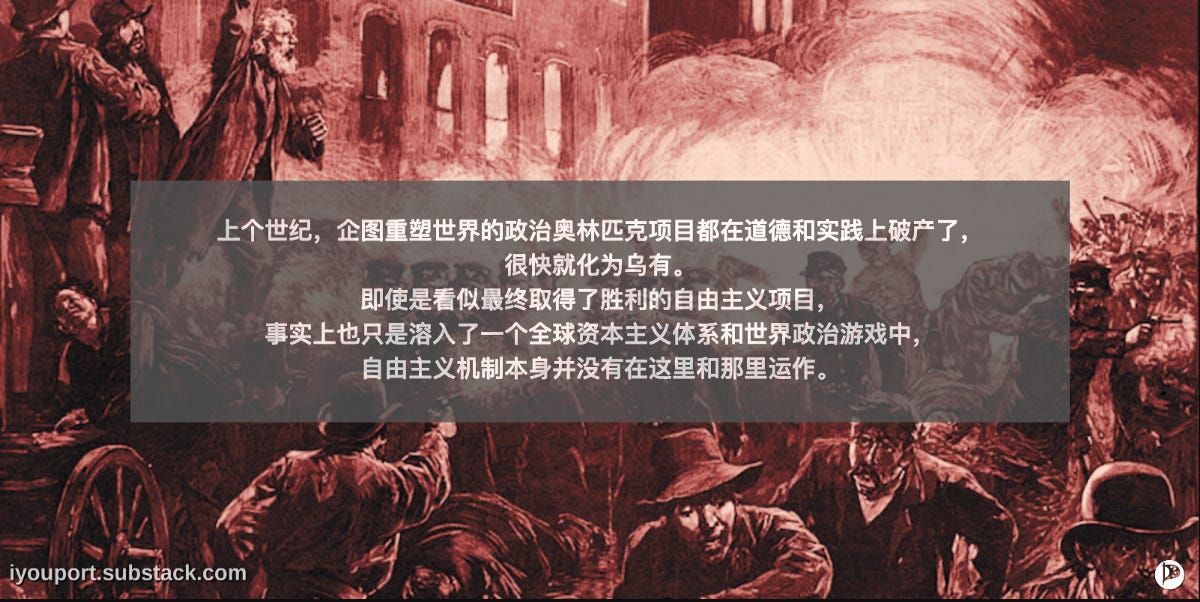
Dissatisfaction with the status quo is not the whole story. It is the insight and intolerance of real oppression and disaster, coupled with the vision of a better world, that merge into a force of resistance. It is also the most advantageous position for mobilization - mobilization on this basis can bring about the highest degree of determination and unity, and it is not easy to give up.
Anarchist mobilization lies in this position.
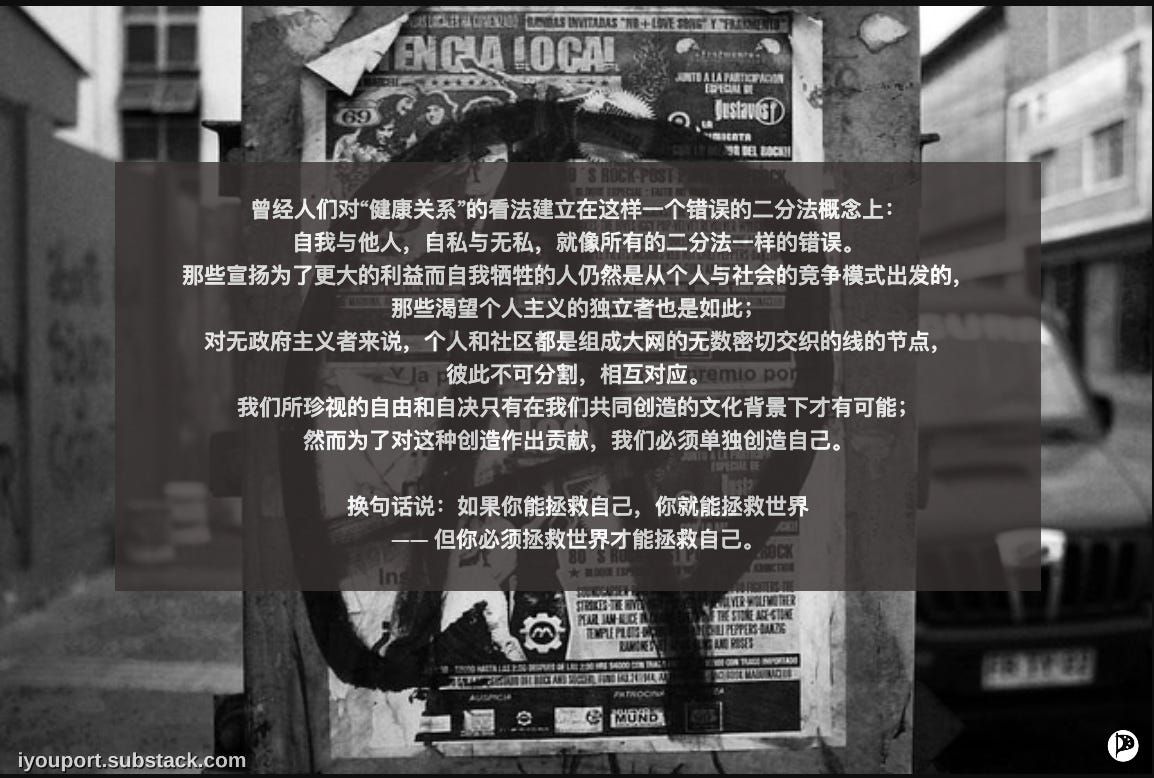
There will be times when the struggle seems bogged down.
We already know.
Alone, uncertain, dwarfed by the size of the enemy.
Please keep this in mind,
Freedom is a pure idea;
It happens spontaneously without any instructions.
Random acts of rebellion occur all over the planet.
Remember, the front lines of rebellion are everywhere;
Even the smallest struggle moves the battle lines forward for all of us.
Please keep this in mind,
Tyranny's need for control is so desperate because it is so unnatural.
Tyranny requires constant struggle;
Because it can break at any time and leak.
Power is fragile.
Oppression is a mask of fear.
Please keep this in mind.
Know that the day will come when all these skirmishes and battles, these moments of defiance, will overwhelm the authority of the ruling, and the ruling will be faced with the last straw. Freedom will break through the siege in one fell swoop.
Please keep this in mind. Keep trying!
In the new year, let’s work together!
🥂🧨🤝
🏴️
——End——

Like my work?
Don't forget to support or like, so I know you are with me..
Comment…